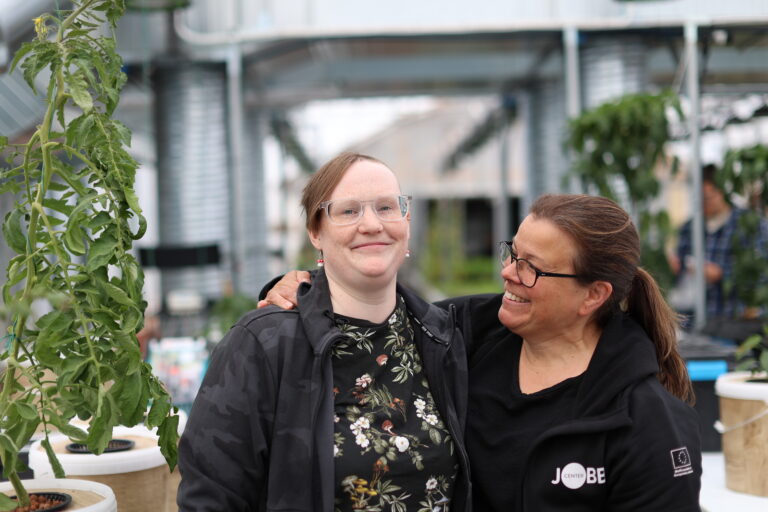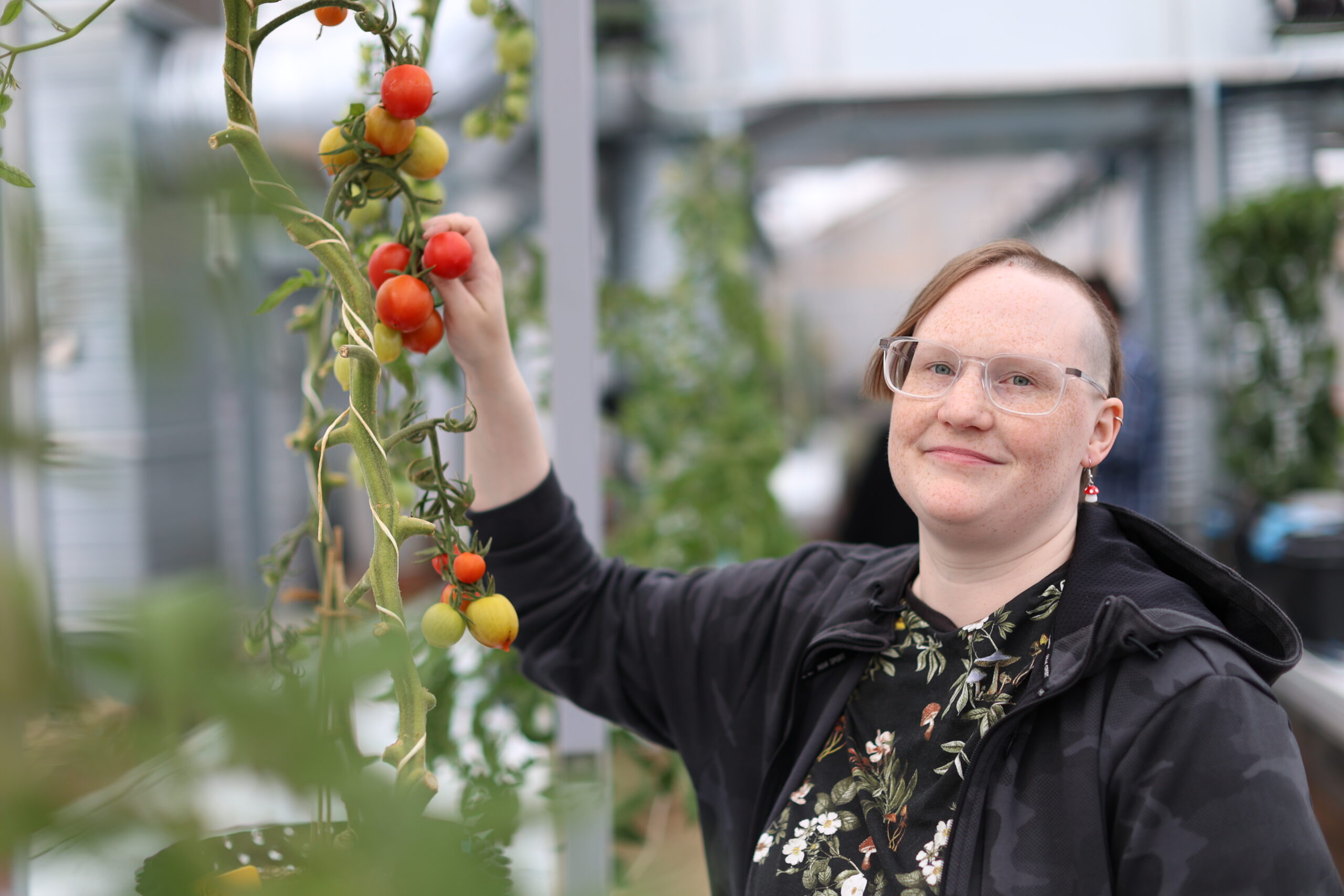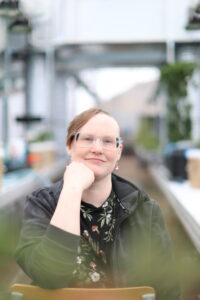Closer to the labour market thanks to Boden greenhouse
2 November 2023
Publicerad 13:16
“I’ve developed on a personal level and as part of society.” So says Alexis Johansson, one of the participants in the ESF-funded project Infinite Growth Zone in Boden, northern Sweden. Together with her fellow participants, Johansson undertook a work placement in a unique greenhouse that utilises residual heat generated by the many server rooms that have been established in the municipality.
Boden has a subarctic climate with long, cold winters, making it ideal for server rooms but less so for growing vegetables. That is until the idea was hatched to recycle the heat generated by servers. No sooner said than done: a number of stakeholders in Boden joined together to create a greenhouse that runs on residual heat and the municipality’s Labour Market Department was tasked with putting the new greenhouse to use. The result was the project Infinite Growth Zone, which was implemented with support from the European Social Fund (ESF).
“The project has provided the long-term unemployed with opportunities to come closer to the labour market. Instead of being passive recipients of financial assistance, the participants have cultivated vegetables in a new and innovative way, Alongside the greenhouse, we have had targeted activities for participants,” explains project manager Helena Löfgren.
The project has been implemented based on the EU’s recommendation on key competences for lifelong learning, which identifies eight key competences essential to citizens for personal fulfilment, a healthy and sustainable lifestyle, employability, active citizenship and social inclusion.
“Among other things, we have held courses in digitisation, including working with Word documents and writing a CV,” says Löfgren.
Instead of being passive recipients of financial assistance, the participants have cultivated vegetables in a new and innovative way.
The activities have proven valuable to participant Alexis Johansson:
“Before the project, I didn’t even know what Teams was. Now I’ve learned a great deal, including where to find job advertisements,” she says.
The project has been staffed by a labour market consultant and two educators who between them create a secure space for the individual. Each participant was given an individual roadmap for their journey towards work or studies.
“Without the educators, it would have been tough for me to go there and perform. They created a stress-free environment, encouraged me and gave me the desire to attend. It was one hundred percent about my own ability. I’ve developed on a personal level and as part of society,” says Johansson.
Creating a sense of community is important for many reasons, but perhaps even more so in a municipality like Boden, which has difficulty with skills provision.
“Here in Boden, we are completely committed to sustainability. We have many people who are outside the labour market and we need to take advantage of the entire workforce we have here. This was clear to us already, even before we knew that a new steelworks was being built here,” says Löfgren.
Good prospects
The project was christened Infinite Growth Zone both because it suddenly made it possible to cultivate all year round and because it facilitates growth for people and society. And the project has certainly had many positive outcomes. Alexis Johansson now works in the greenhouse as part of the project DC Farmers, which will eventually become a work integration social enterprise. The name DC Farmers (the DC stands for data centre) will also be the new job title for this type of work. The project is managed by Sunderby Folk High School in collaboration with Boden Municipality and RISE Research Institutes of Sweden.
“We are feeling our way forward when it comes to planting, including growing in water, so-called hydroponic cultivation. Soon we will also be breeding black soldier flies, which can be used as feed for fish farms, chickens and pigs,” says Johansson.


The project has also involved incredible development on many levels for Boden Municipality, especially with regard to collaboration, which has been key to all solutions.
“Among other things, we have drawn up an agreement with the Department of Social Welfare so that we can continue to work with what we call the Growth Zone model even though the project has now ended,” says Helena Löfgren.
This work will be extensive and the municipality will be able to support more people on the journey to self-sufficiency. To this end, five new employees have been recruited, with five more to be recruited over the coming year. In addition to cultivation, the 300-square-metre greenhouse now functions as a showroom for new technology, which is important for establishing new businesses. And collaboration between the municipality and other stakeholders remains good.
“The important thing is that we do it together, through our combined efforts. The Swedish ESF Council is certainly one facilitator. The European Social Fund has contributed to more than individual growth, it has contributed to societal growth,” concludes Löfgren.

